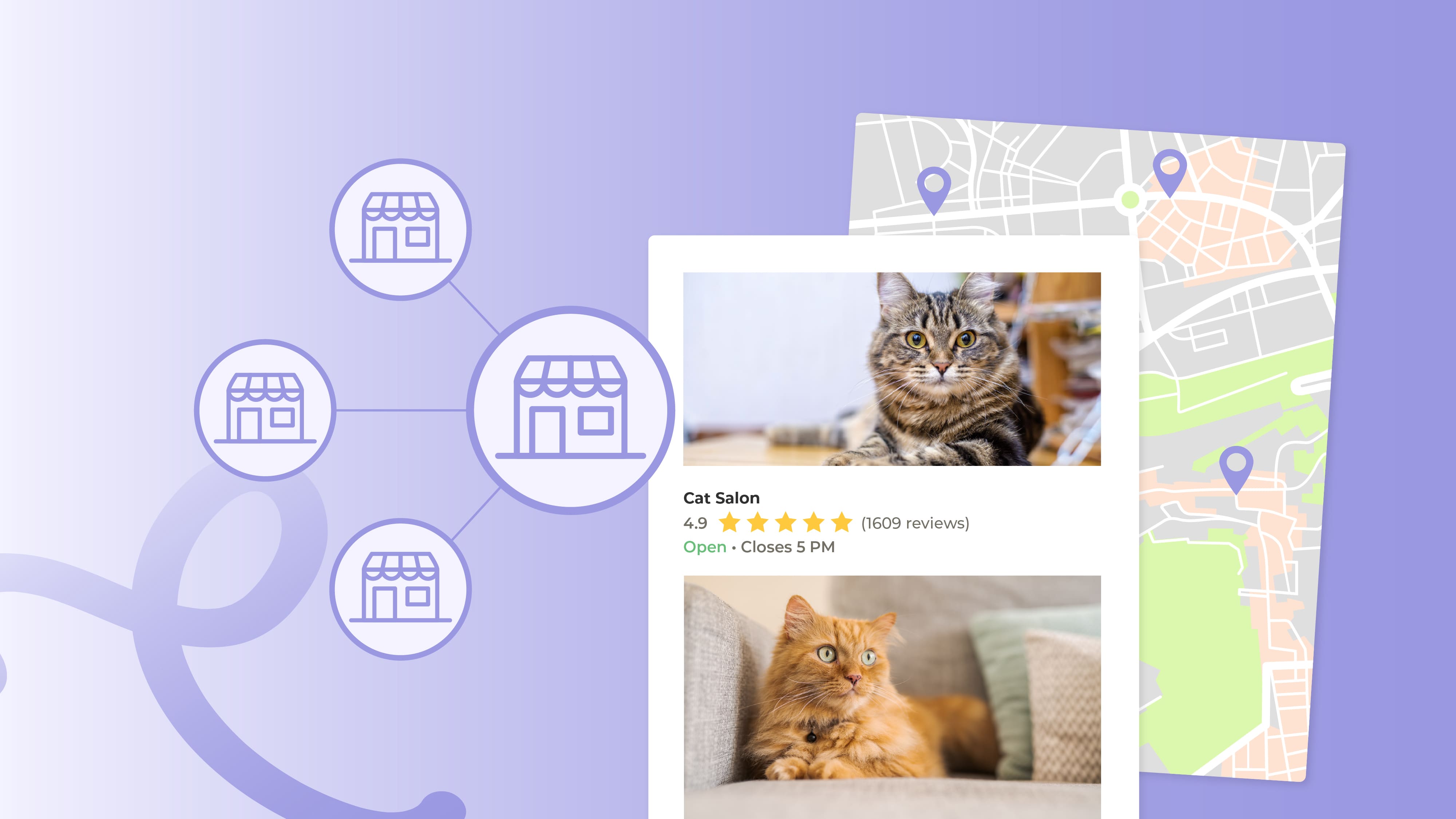According to the latest figures, 70% of consumers agree that brand trust is more important today than in the past.
In this guide, we’ll take a look at what brand trust is, why it matters more than ever, and how you can build trust in your brand the right way.
Let’s get started.
What is Brand Trust?
Brand trust reflects a consumer’s expectation that a brand’s product, service, or corporate behavior, matches the promises the company has made.
Failing to build or protect brand trust undermines customer loyalty, and can damage a company’s reputation and revenue.
Brand trust is the most important quality that you need to develop as part of your brand strategy. Consumers need to trust that your brand will deliver on its promise in every interaction, or they’ll search for another brand that does meet their expectations.
Furthermore, brand trust turns into brand loyalty when consumers are so confident in your product or service that they don’t hesitate to recommend you to family, friends, and colleagues knowing that neither party will be disappointed.
Why Brand Trust Matters More Than Ever
The 2020 Edelman Trust Barometer Special revealed that brand trust has never been more important to consumers:
- 53% say brand trust is second only to price.
- 70% say trusting a brand is more important today than in the past.
- 81% say personal vulnerability (around health, financial stability, and privacy) is a reason why brand trust has become more important.
- 74% say a brand’s impact on society is a reason why brand trust has become more important.
- 46% say they trust most of the brands they buy and use – that’s a 12% increase on last year.
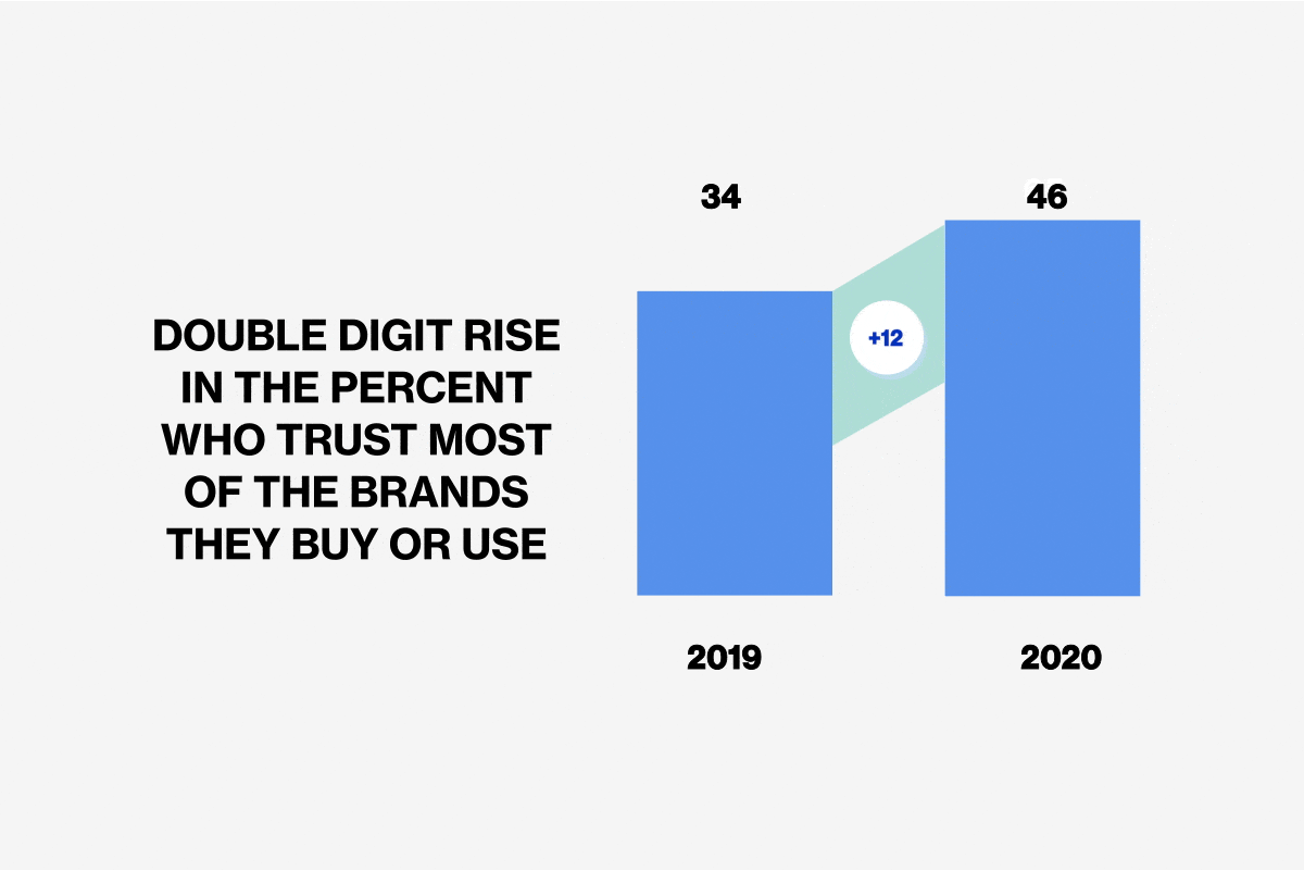
Brand trust is becoming more important
As a result of the global crises, people now expect brands to take a stand and advocate for change, inspire hope, and use their brand to improve society.
“Trusted brands now live at the intersection of personal and societal, and words and actions.”
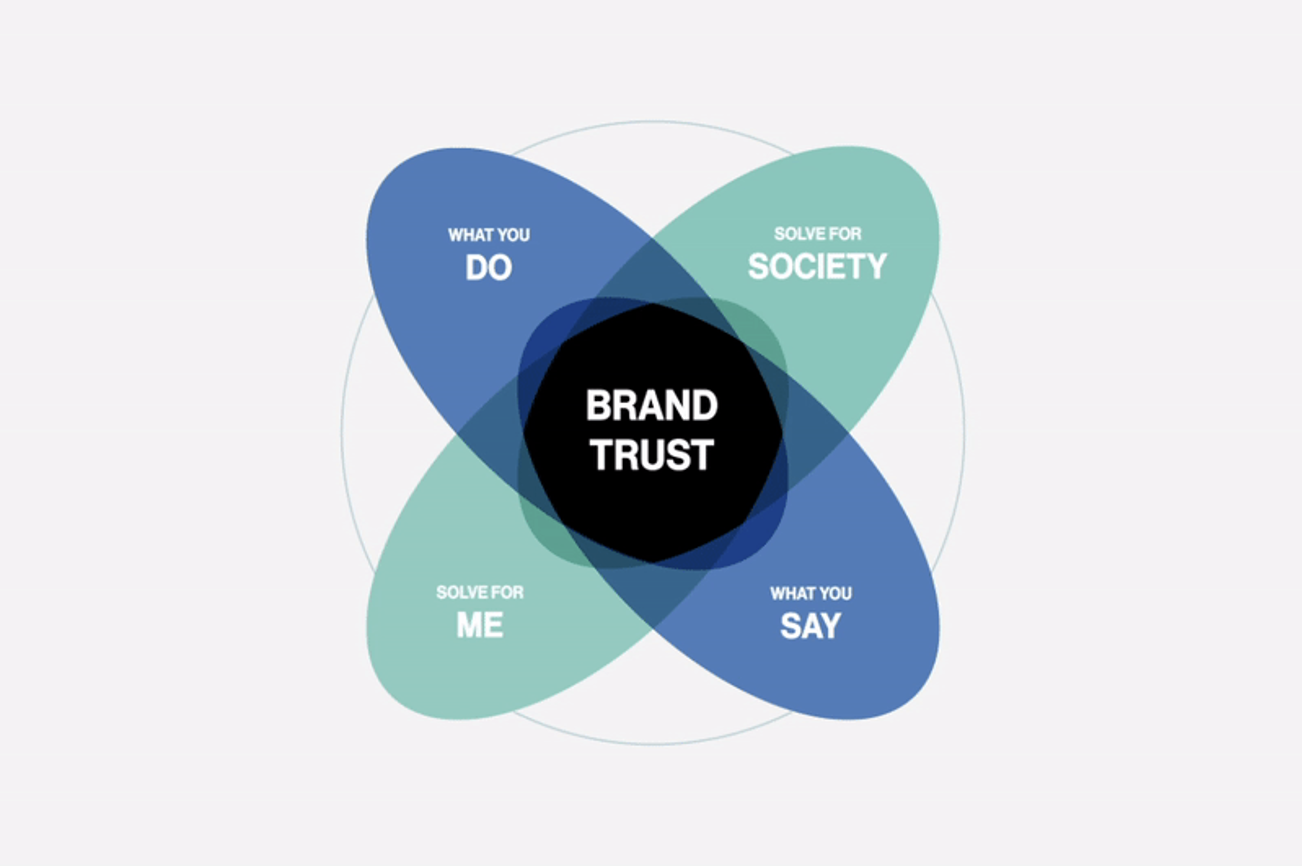
In a LinkedIn Live conversation on sustaining brand trust, Callie Schweitzer asked Lisa Ross, COO of Edelman, and Esi Eggleston Bracey, COO of Unilever, what role brands should play in responding to global issues, and what does it look like to trust a brand and its commitment to change.
Lisa said that people are looking for honesty and integrity. And that companies need to think through and beyond an initial glib statement and “walk the talk.” She also stressed that brands have to avoid a rapid response and think about the long term – sustaining brand trust is a conversation for every quarter over the next five years.
Esi added that the responsibility of a company is to do good in the world. Brands need to be more human and authentic than ever before. And like Lisa, she said that brands should not expect immediate results in building brand trust, but plan short-term milestones with long-term goals.
The benefits for trusted brands
Is brand trust worth pursuing?
Edelman’s research also underlines that trust defines brands. Consumers who trust the brands they purchase from will reward them with loyalty, engagement, and advocacy.
Loyalty:
75% of people with high brand trust said:
- They’ll buy the brand’s product, even if it isn’t the cheapest.
- It’s the only brand (of this product) they’ll buy.
- They’d be very interested in checking out and buying a new product from the brand.
Engagement:
60% of people with high brand trust said:
- They’re comfortable sharing personal information with the brand.
- They pay attention to the brand’s advertising and marketing communications.
Advocacy:
78% of people with high brand trust said:
- They’ll likely share or repost content about the brand, or share their experiences with the brand.
- They’ll recommend the brand to others.
- They’ll defend the brand against criticism.
How to Build Brand Trust (the Right Way)
We’ve already seen that brand trust is one of the most significant factors in consumers’ purchasing decisions.
It’s not just the Edelman survey that supports the argument. A PwC survey also confirmed that brand trust was an important factor for consumers when making purchases.
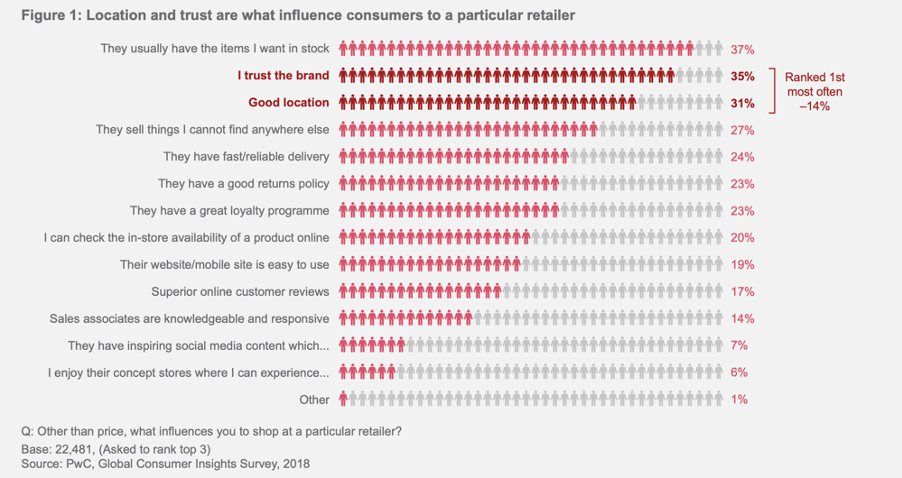
In this section, we’ll explore how you can build trust in your brand.
1. Track your brand trust goals
To start with, you’ll need to decide what your brand trust goals are and how you’re going to measure them.
You can use something as simple as Google Alerts to monitor your brand keywords or use Loomly Interactions to respond to @mentions of your brand on social media.
You can also monitor brand trust by checking out relevant review sites like Google My Business, Yelp, and Trustpilot. Or, you could run customer satisfaction surveys, such as Net Promoter or Survey Monkey.
2. Appoint a brand trust leader
Depending on the size of your organization, it might make sense to appoint a brand trust leader, or maybe a brand evangelist. This role involves documenting your brand’s vision and goals, and how you plan to build trust and loyalty.
3. Have a reliable product/service
Selling a low-quality product or offering poor quality service is guaranteed to do more harm than good. That’s why it’s essential to ensure you have a reliable product or service that consumers can rely on and trust.
One way to achieve that is through a rigorous testing program that involves customers or prospects from your target audience. Getting constructive feedback in your beta testing avoids a lot of heartaches when you launch your product.
4. Maintain brand consistency
It’s vital to be consistent in everything you do and say about your brand, including your brand colors, logo, tone, and personality.
Brand consistency builds confidence with your audience, as well as enhancing brand awareness. For example, you could enter an Apple store across the world and expect to see the same furniture, displays, products, and prices. The only difference would be the local language and currency.

Apple Store Trafford Center, Manchester, UK — Credit: Apple.com
5. Be authentic through brand storytelling
Brand storytelling is the process of creating a compelling narrative around your brand that connects with your target audience.
Consumers want to know who your brand is and what you stand for – your values, your goals, and your culture.
So you need to cultivate an authentic look, feel, and sound for your brand. Here’s how:
Provide authentic content
- Keep your content conversational so that your messages reflect the real people behind your brand.
- Create in-depth, engaging, and valuable content to nurture trust in your brand.
- Host live video events so people can experience your team first-hand and ask questions.
Share relevant and trustworthy sources
- Link to relevant and respected data-driven sources in your content.
- Refer to industry thought leaders in your curated content.
- Use branded links on social media.
Encourage user-generated content
- Encourage your customers to tell their stories and share their personal experiences so that you can use it in your marketing.
- 92% of consumers trust the recommendations of other people over branded content.
- 83% of consumers trust the recommendations of friends and family more than product advertisements.
Use earned media and influencers
- Almost 70% of consumers say they use one or more advertising avoidance strategies, like ad blocking, so focus on earned media rather than product ads.
- Consumers trust thought leadership content from expert employees across a business.
- Consumers trust influencers more than branded content, so consider hiring micro and macro-influencers to promote your brand and build trust.
6. Offer a consistent customer experience
Consumers want a good experience of using your product or service. They want a relationship with your brand and the people behind it. They want to experience the human touch, not a faceless, cold organization.
If you can make their experience of interacting with your business smooth and seamless, respond to their queries quickly, and do what you say you’re going to do, then you’ll build brand trust.
According to a PwC survey, people are increasingly loyal to the brands that consistently provide exceptional value with minimum friction or stress. And 73% say customer experience is an important factor in their purchasing decisions.
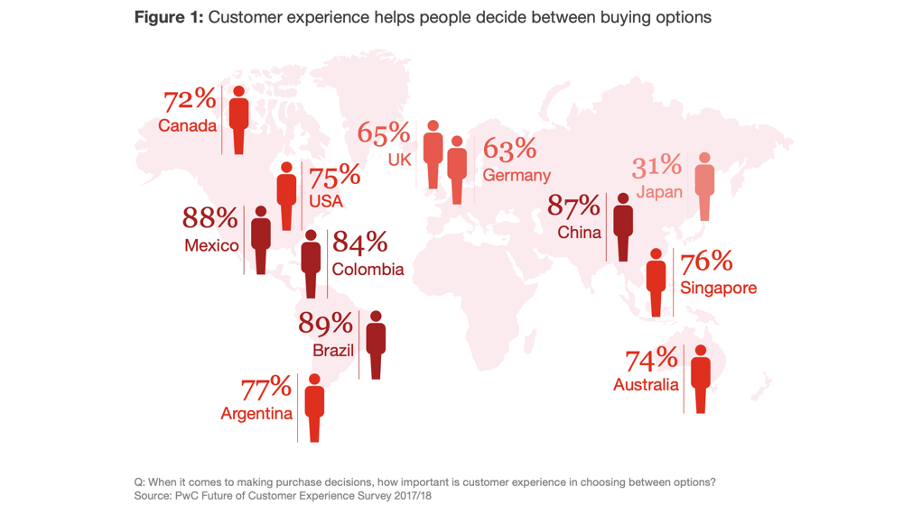
7. Get customer input
It’s imperative to continue a dialog with your customers after they’ve purchased your product or service. Getting to know your customers helps you support them and build more profound levels of trust in your brand.
Customers will feel more valued and more loyal to your brand if you take the time to hear what they have to say.
Here at Loomly, we value our regular communication with customers.
Speaking to Authority Magazine, our CEO Thibaud said:
“Every day, we speak with over 100 Loomly users, which gives us an incredible opportunity to learn from their feedback and understand what works great on the platform, what needs improvement, and what we should build next.”
8. Focus more on customer relationships than revenue
What’s more important – customer relationships or revenue?
If your sole focus is to generate revenue at all costs, then you’re likely not focusing on customer relationships. But, in essence, the two go hand-in-hand.
If you build on-going relationships with your customers, then they’ll turn into your biggest fans and recommend you to their friends and colleagues, which in turn brings more revenue, and so the cycle begins again.
9. Embrace honesty and transparency
People want companies to be honest and transparent.
You can demonstrate your honesty by turning away prospects that won’t be a good fit for your product or service, rather than just taking their money.
It’s better to be upfront and say something like: “Sorry, we’re not the right fit for you at the moment. Have you considered trying this brand or product instead?”
That kind of honesty will create a lasting impression.
In a 2016 study, 94% of consumers stated that transparency in a business was essential in gaining their loyalty.
One way you can show your transparency is by offering a “backstage pass” to your employees. Take customers behind-the-scenes so they can experience your culture. For example, you could feature “star employees” or host AMAs on social media.
10. Build social proof
Social proof in the form of positive customer reviews and testimonials is an excellent way to attract new business. As noted earlier, customers trust other customer opinions and reviews more than your own content.
According to BrightLocal, consumers read an average of 10 reviews before trusting a business.
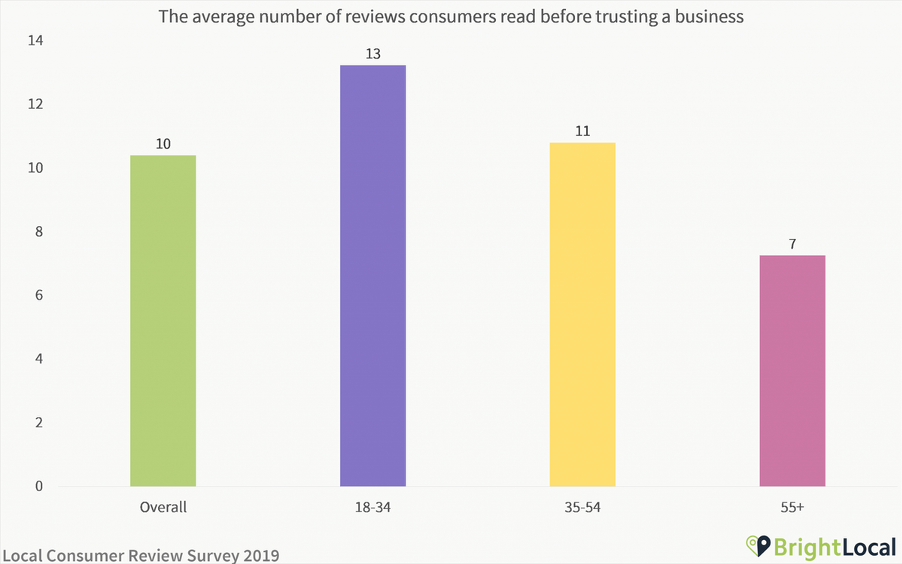
Plus, 70% of consumers look at multiple review sites, so it’s important to use a selection of relevant sites for your brand.
Encourage customer reviews
By encouraging reviews, your brand demonstrates you care about what your customers think and are confident in the quality of what you’re selling.
According to Neil Bayton from Trustpilot:
Reviews (from a trusted source) are the best way to gain trust from potential consumers. When you combine a product or service with social proof, consumers will respond.
Before making a purchase, consumers will check how your brand is rated on Trustpilot, Yelp, and other review sites. If they can see at a glance that you have a high rating, they’re more likely to buy.
Reply to negative feedback
You need to encourage and monitor the feedback you’re receiving. Even if you receive negative feedback, you have the chance to respond with transparency and turn it into a positive situation.
Grow your brand equity
Brand equity is the perceived worth or importance of your brand to a consumer, and is key to building trust in your brand.
One way you can grow your brand equity is by creating in-depth case studies of your successful customers and publishing them on your site or sharing them with prospects.
11. Make sure your brand acts responsibly
Consumers expect companies to be socially responsible.
Whether you’re reducing your carbon footprint, responding to the global pandemic, or supporting racial equality, it’s important to back up your words with actions to avoid being seen as exploitative or opportunist.
In other words, you need to get your own house in order and “walk the talk” rather than spouting empty, meaningless words.
Brand Trust in a Nutshell
Brand trust is more important than ever to consumers.
As a result of the global crises, people now expect brands to take a stand and advocate for change, inspire hope, and use their brand to improve society.
Building brand trust doesn’t happen overnight – it requires a long-term plan that’s executed consistently, openly, and honestly.
But in the long-run, consumers who trust the brands they purchase from will reward them with loyalty, engagement, and advocacy.

